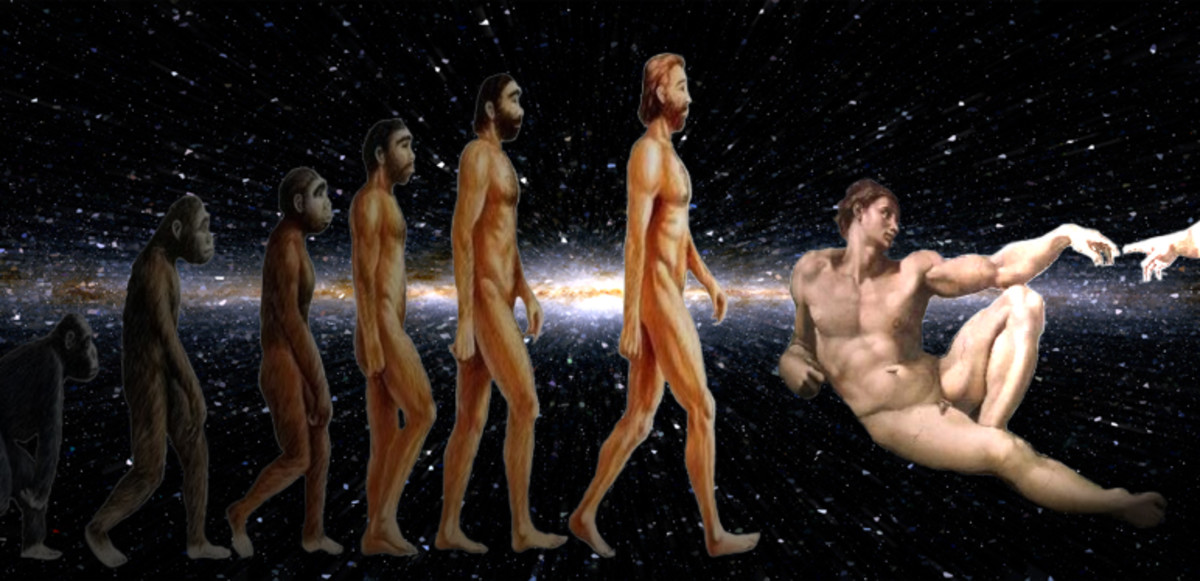The Fluidity of Life - Understanding the Power of Perspective

"What lies behind us and what lies before us are tiny matters compared to what lies within us." Ralph Waldo Emerson.
The origin of the world’s existence as purported by the biblical theory of creation has it that many years ago—probably million of years—God created the heavens and the earth. Before the creation and recreation of an already deformed earth could begin, God needed light to work with. As recorded by the Hebrew writer—Moses—in his biblical account of the creation process, we find an incongruous expression of what God did: he demanded light to come out of darkness.
That might look prosaic to you if you just look at ‘what’ he did as distinct from ‘how’ he did it. “Since God is all-powerful, he can certainly command light to come into existence,” you might say. But taking a closer look at the ‘how’, actually tells us a little bit about God’s character: he doesn’t run away, neither is he taken aback by a problem, instead he pulls out the solution from the problem itself.
How God brought that light into being is intriguing. He saw a daunting problem—darkness—he didn't say anything about it, he didn't fuss about it, he made no complaints about it; he literally ignored it. Instead of getting all worked-up and emotionally perturbed by the negative situation (darkness), all he did was to remain positive, thus, speaking positivity into a negative situation—he caused light to shine out of darkness.
That teaches that we don't have to react negatively to a negative situation. We don't have to react to a problem like it's fixed or like it's the end of the world. Remaining positive in the midst of negativity gives us the mental stability and ability we need to face the negative situations we're confronted with.
Another thing we can adduce from how God brought light into existence is this: It doesn't matter how dark the circumstance you're surrounded with is, your perspective and response is all that matters.
You see, life isn't fixed; it's fluid. It's your perspective that ultimately determines the direction things in your life flows towards. This is quite opposed to a popular belief that if things are bad on the outside, then there's really nothing we can do but to wallow in despair and grieve over the unfavorable, ugly state of our ‘fixed’ fate. Those who think this way are those who give up on life too easily, hoping one day, life will show some little pity on them, and have them see thing change by themselves. Really, there's no hope for such thinkers because nothing just happens. We have to consciously decide, like God did with the darkness, to make things happen.
If our creator really made us in his image, then we are necessarily creative beings, too. You wouldn't be wrong if you called yourself a creator. The advancement we've seen over the years in human civilization affirms the fact that man is a creative being. Over the years, we've seen improvement in technology, agriculture, manufacturing, transportation, medicine, and so on, because we, like our creator, are creative beings. But what part of our being do we use in exercising our creative potentials? It's our mind.
Consequently, what we do with our minds is so important in that it determines the direction our life flows towards. Just like the wind blows over the waters of the ocean and causes it to move this way and that way—in whatever direction it desires—so do our lives move towards the direction our mind wishes. Life is that fluid.
“Everything we experience in life,” Jack Canfield comments in his book Success Principles, “whether it is success or failure, wealth or poverty, health or illness, intimacy or estrangement, joy or frustration, is the result of how we responded to events in our lives.” Your response to events is preconditioned to your mental state—how you perceive things in your mind. Hence, the key to life, isn't responding naively in negativity to the events, but to see and respond to things the way we want them to be—in positivity. That's the principle of perspective. That's what God did in creating the earth: he responded to darkness (negativity) by speaking light (positivity).
God knew the darkness, though negative and unwanted, wasn't fixed. He knew he could alter it as he desired—it was fluid. Now, since we're God's highest form of creation, though we might not be able to command things and see immediate results, however, we can have it change at a slower but equally effective rate. This happens when we intentionally gain control over our minds, directing our thoughts, images, dreams, words, and behavior (i.e., everything we say and do), causing it to be in alignment with our purpose, values, and goals.
Instead of getting cranky and grumpy over things we cannot control, we can choose to tame our minds, and turn on our imaginative power, which is our creative ability, channeling it towards our desires, thus seeing things differently.
Two people observes a certain quantity of water in a cup, one describes it as half full, the other half empty. The difference between the two is perspective. The same problems might cause some to become stupendously rich, while making others poor, all because of the differences in perspective. The same person might cause some to wallow in depression or get others mad, while making some happy, the difference is perspective. One person might blurt out and say, “there's no money anywhere,” while others who chose to see their world differently, go on to make meaningful contributions in their society, consequently getting richer by the day. The truth is, nothing is fixed. The difference is perspective.
Perspective is what internal force that drives a student who believes he can do well to study for hours and pass excellently, while inhibiting others who believe they can't do well from taking the necessary actions they need to succeed academically. No doubt, one's perspective influences his actions and ultimately, his life.
Chris Oyakhilome, in his book The Power of Your Mind, enunciates this truth: “Your mind can make you rich or poor. It can place you on the pedestals of glory and greatness or dump you in the dust of suffering and shame.” All of these depend on how you use your mind.
You would agree with me that there's no telling what we could achieve with our minds if we're only going to tame it. As hinted earlier, we tame the mind by channeling the images in our mind, the words we hear, and the ones we say to be in alignment with our ultimate goal, irrespective of the events we're experiencing. Life is so fluid that in whatever way you choose to see and respond to things is how it’ll ultimately turn out for you.
© 2017 Matthew Joseph








